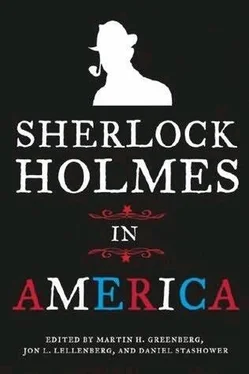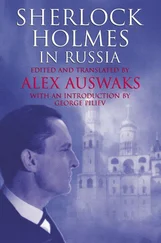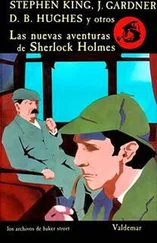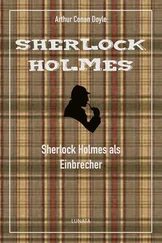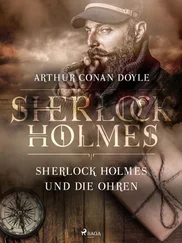What are we to make of this?
These are very deep waters, indeed. And without resorting to armchair psychoanalysis, it seems clear that Conan Doyle, in a successful attempt to penetrate English society, masked himself à la Birdy Edwards-and later, most ominously, as Holmes himself-and yet felt such a sense of self-loathing that he was forced to confess his sins to his alter ego, Dr. Watson.
And so it is in the pages of the Canon that we see the Conan Doyle psychodrama played out, where the Irishman battles the Englishman with the Scotsman as referee. And the Irishman-or in one particular case, the Irishwoman-always loses.
There is no question that his Celtic heritage was a source of endless fascination for Conan Doyle. Edinburgh has, since the Irish exodus of Black ’47, hosted a large Irish minority, as do several other British cities, including most prominently Glasgow and Liverpool. Looked down upon, often despised, the Irish were to the English what the Africans and the Indians were to eighteenth- and ninetheenthcentury Americans: a dark and savage people, by turns childlike and murderous, given to song and dance but appallingly prone to sudden outbursts of the most appalling violence. Incapable of controlling their thirst for drink-“the Creature,” in Irish parlance-they were clearly second-class citizens (if indeed citizens at all).
The Doyle family had been in Britain for generations, but the Foley family-Sir Arthur’s beloved mother was the Irish-born Mary Foley-brought him close to his origins. “My real love for letters, my instinct for storytelling, springs from my mother, who is of Anglo-Celtic stock, with the glamour and the romance of the Celt very strong marked.” (Even when discussing his own mother-“The Mam”-Conan Doyle felt compelled to resort to Irish stereotype.)
But that was the happy face of the Celts. The dark side, the Creatureobsessed, was symbolized by none other than his father, Charles Altamont Doyle, whose powerful thirst damaged a promising career as an artist-the wreck of whom we have visible evidence in the six drawings he made for his son’s A Study in Scarlet , featuring a bearded Sherlock Holmes.
So… Mor iarty, Mor an, Mc Mur do, even Mor gan the poisoner. All Irish names, each one beginning with some variant of “mor,” the linguistic signifier of distress and death. The most powerful resonance of all, of course, is the Irish phrase An Gorta Mor- the Great Hunger-referring to the famine of the mid-nineteenth century, which changed, changed utterly, the fate of That Most Distressful Nation.
Can you see the pattern emerging here?
Mordred. Fata Morgana. Even Tolkien’s fictional Mordor-each of these Celtic formulations indicates danger and darkness. For Tolkien, “Mordor” was the Black Land, an etymological throwback to the roots of our common tongue and the source of our word “murder.” Clearly, in the works of Conan Doyle, the prefix “mor” immediately indicates that the person named is not to be trusted, is not only dangerous but mur derous-someone with whom an interaction may well be fatal.
So let us now consider three Canonical stories of the utmost significance to our discussion: The Final Problem , The Adventure of the Empty House , and His Last Bow . And then let us conclude with a fourth that may well feature the most surprising character in all the Canon. Someone who puts Moriarty and Moran in the shade-Sherlock’s most dangerous opponent, but one without whom he could never have survived the plunge over the Reichenbach Falls. Someone who is, in many respects, the most crucially overlooked figure in the Canon-which is exactly the way Conan Doyle wanted it.
In many ways, The Final Problem is the most straightforward of the lot, and certainly makes an ideal curtain-raiser to this discussion of anti-Hibernianism. I need not recount the story here; suffice it to say that it not only introduces us, in person, to Professor James Moriarty, it also engenders a whole discussion of precisely how many Moriartys there actually are, and whether they are all named James. Certainly, the Professor is an unlovely physical specimen, devisor of a binomial theorem of genius or not. Physically, he resembles a reptile, and upon meeting Holmes he promptly insults him by expressing disappointment in the size of his frontal development. (Of course, we have only Holmes’s word for this, since Watson can only report the hearsay encounter from Sherlock’s testimony.)
But the Professor is the primus inter pares of declared Sherlockian villains, and there can be no question of the mortal danger he poses to Holmes. Holmes, on the verge of rounding up Moriarty’s gang, convinces Watson to travel with him to the Continent, where Holmes has his final confrontation with his now-discomfited nemesis.
And so Moriarty dies. But like his shape-shifting predecessor, Fata Mor gana, he is almost immediately reincarnated in the form of his henchman, Sebastian Moran, who (we learn in The Empty House ) bombards Holmes with boulders as the Great Detective scrambles away from the Reichenbach abyss. Holmes imagines he hears the late Professor’s voice screaming at him from the bottom of the falls, and then suddenly Moran appears, bent on malevolence, as if summoned from the depths of Hell. His subsequent attack on Holmes from the empty house in London is entirely to be expected, but Holmes outwits him and the “second most dangerous man in London” is captured and charged with the murder of the Hon. Ronald Adair.
Then something entirely miraculous happens. Holmes and Watson are restored to their old rooms in Baker Street, which despite fire and gunshots are found to be in essentially pristine condition, maintained by Mycroft Holmes and Mrs. Hudson, with “all the old landmarks in their places,” including the chemical corner, the acid-stained table, the scrapbooks, the violin, the pipe rack, and the Persian slipper.
And Holmes’s encyclopedia of biographies, where in addition to Morgan the poisoner, Merridew of abominable memory, and Matthews, who knocked out one of Holmes’s teeth, we find Colonel Sebastian Moran, London-born son of Sir Augustus Moran, the former British Minister to-Persia.
By now, it’s clear that the combination of murder and magic, so quintessentially Celtic, is powerfully at play here. Like Conan Doyle himself, Professor Moriarty and Colonel Moran have a patina of Britishness to overlay their Irishness, but Hibernianism in the blood can take the strangest forms, and in this case it took the form of two respectable “Englishmen” who were, of course, really disguised Irishmen. Exactly like Conan Doyle himself.
And so we come to His Last Bow , that moody, mysterious and moving ave atque vale , written in the third person-as if by Conan Doyle himself-in which all of the Literary Agent’s obsessions can at last be viewed in full flower. Secret identities. Irishness as a marker of betrayal. A false identity, as false as that of “Birdy Edwards” during the Pinkerton man’s undercover work in Vermissa Valley. Holmes learned American gangland slang in Chicago, joined an Irish secret society in Buffalo, and got into trouble with the constabulary in Skibbereen as he polished his anti-English credentials. Then (in collusion with Martha, the ever-faithful Mrs. Hudson), he sprang the trap on the German spy, von Bork. And when the imperious kraut vows vengeance, how does Holmes respond? “The old sweet song. How often have I heard it in days gone by”-an allusion to the famous American popular chanson written by the Irish-American James L. Molloy in 1884, “Love’s Old Sweet Song.”
Says Holmes: “It was a favorite ditty of the late lamented Professor Moriarty. Colonel Sebastian Moran has also been known to warble it. And yet I live and keep bees upon the South Downs.”
Читать дальше
